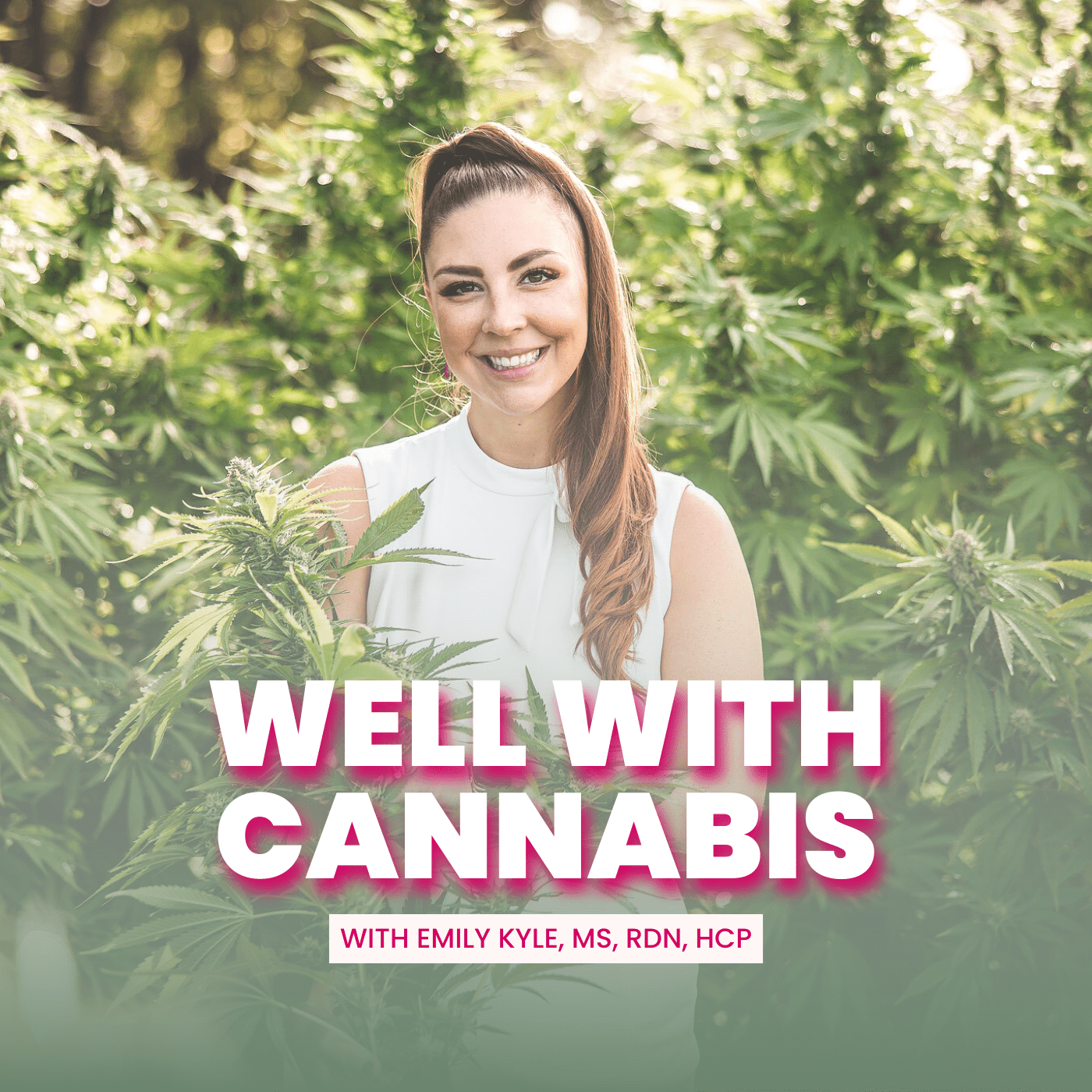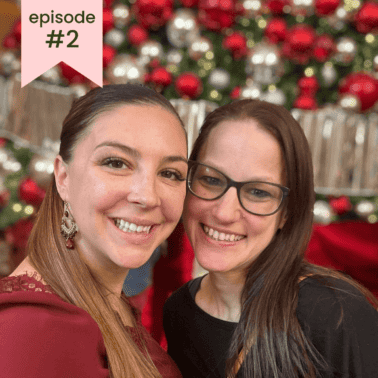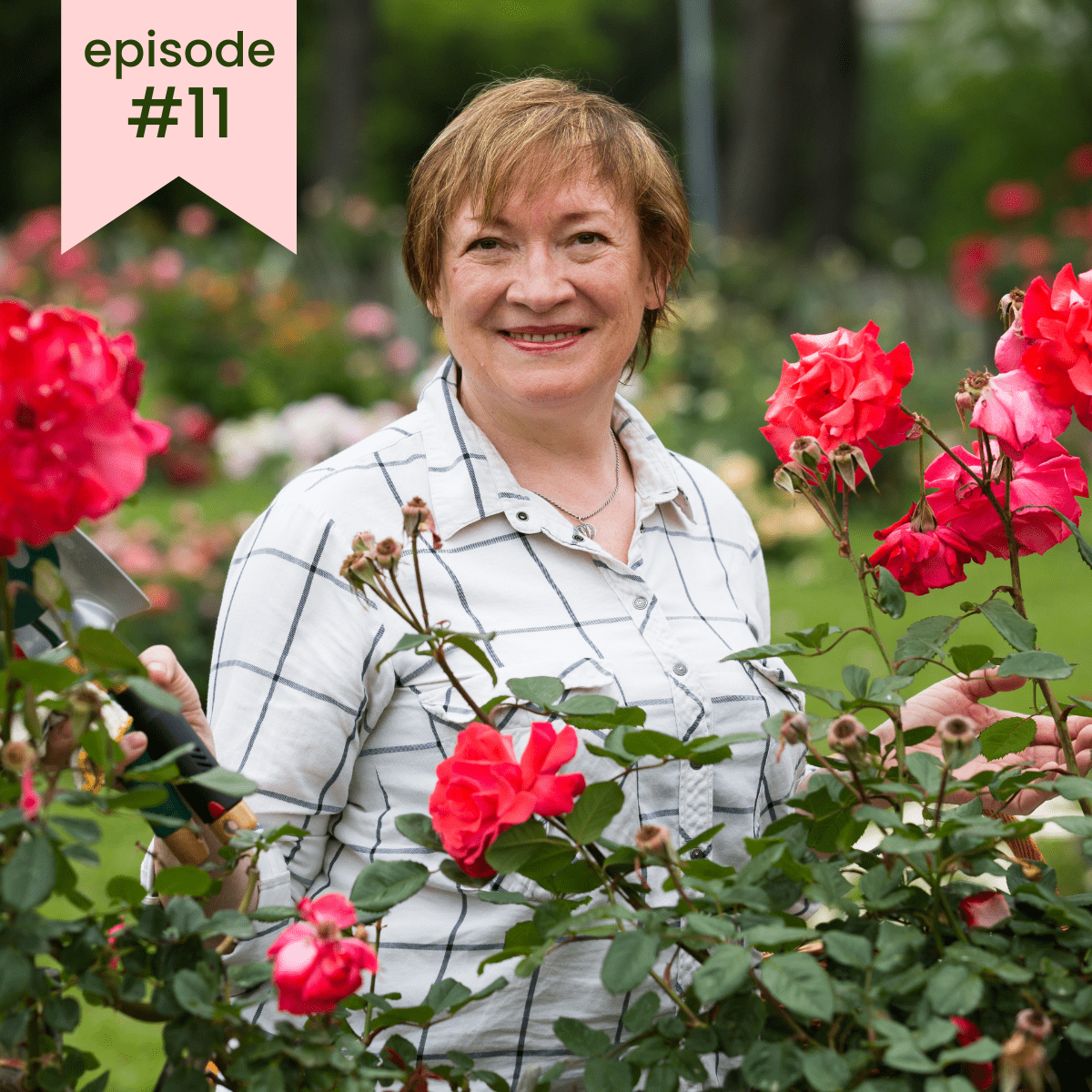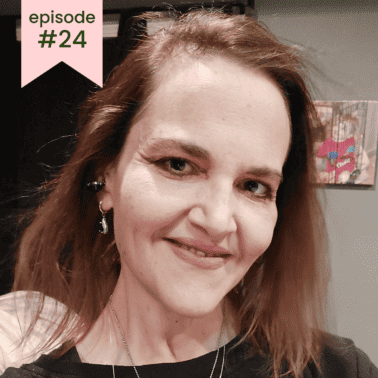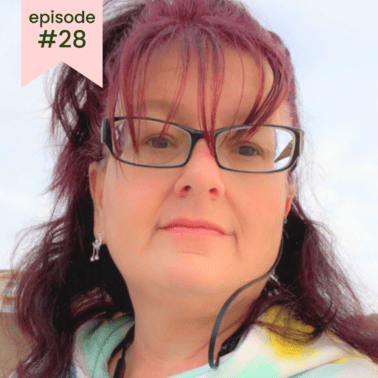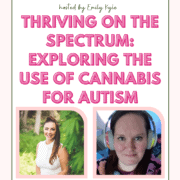Join us for this week’s episode as Mary Gardner discusses how cannabis has transformed her life as she tackles CPTSD, anxiety disorder, and being on the autism spectrum. Get inspired and learn about the potential of cannabis in promoting holistic healing and personal growth.
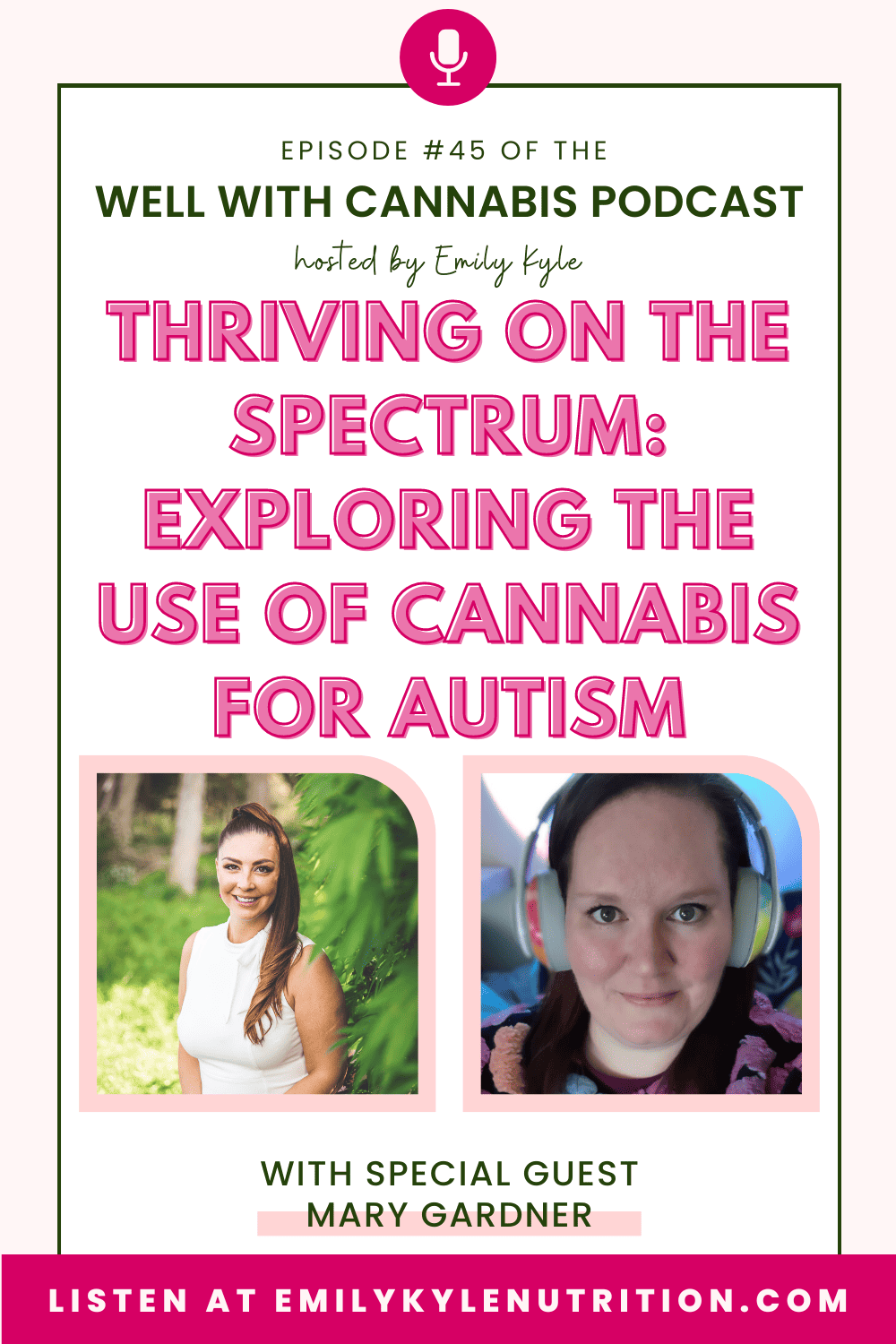
Table of Contents
Features
- Release Date: Wednesday, August 30, 2023
- Episode Number: Season 1, Episode 45
- Special Guest: Mary Gardner
Listen To The Episode
Click the play button above to listen to the episode.
Listen to all podcast episodes →
Why You Will Love This Episode
This week’s guest, Mary Gardner, is a true inspiration, having overcome many challenges, including chronic pain, CPTSD, anxiety disorder, and being on the autistic spectrum.
She bravely shares her personal journey of navigating this world and how cannabis has played a transformative role in her life.
Mary discovered the power of cannabis when she was dealing with stomach issues, and it turned out to be a game-changer.
Not only has it alleviated her pain, but it has also allowed her to truly live her life to the fullest. Using her VR headset, she even incorporates cannabis into her workout routine, showing us that physical activity can be enhanced with the right mindset.
One of the most significant impacts cannabis has had on Mary’s life is in the realm of social interaction.
As someone who struggled with socializing, she found that cannabis made connecting with others much easier. It has given her the confidence and ease she always longed for.
Beyond the physical and social benefits, Mary also shares a deeply personal aspect of her life, being adopted and carrying the wounds associated with it. Cannabis has been instrumental in helping her heal and learn to let go, providing a sense of peace and acceptance.
Join us as we jump into Mary’s fascinating story and explore the use of cannabis for autism.
This episode will inspire and educate, shedding light on an alternative approach to wellness that has profoundly impacted Mary’s life.
Related Episodes
Podcast Episodes
Conquering Sjögren Syndrome with Cannabis
Podcast Episodes
From Addiction to Meditation with the Help of Cannabis
Podcast Episodes
Cannabis & Addiction Counseling: Strengthening Bonds
Podcast Episodes
Navigating ADD and ADHD with Cannabis: A Personal Journey
Full Transcript
Mary: I still have absolutely knock down, drag out, awful days with my body, with the emotions that I deal with. I have meltdowns. I’m autistic. I have them, but I can tell you unequivocally that the days I have that are better and worth living for are more, and I don’t really remember the bad days.
Announcer: Welcome to the Well With Cannabis Podcast, a show dedicated to telling the life-changing stories of those who live well with cannabis all while teaching you how to do the same. Meet your host, Emily Kyle, a registered dietitian nutritionist turned certified holistic cannabis practitioner. Emily changed her life for the better with the help of the cannabis plant, and now she’s committed to helping others do the same.
Tune in each week to hear heartwarming stories and gain the knowledge you need to feel connected, inspired, and supported on your own cannabis journey. Whether you’re a new cannabis consumer or a lifetime lover, you’ll benefit from these uplifting tales of real-life journeys that will show you how you, too, can live your best life well with cannabis.
Disclaimer: Hi there. Before we jump into today’s episode, I wanted to share a note on potentially sensitive content. The episodes on the Well With Cannabis Podcast are created for adult audiences only. We will, at times, cover sensitive topics, including but not limited to suicide, abuse, mental illness, sex, drugs, alcohol, psychedelics, and the obvious use of plant medicine. Explicit language may be used occasionally. Please refrain from watching or listening to the show if you’re likely to be offended or adversely impacted by any of these topics.
The information on this show is for informational and educational purposes only. It does not constitute medical advice. If any of the content on this podcast has brought up anything for you, please reach out or speak to a professional or someone you trust.
Emily: Hello, and welcome back to another episode of the Well With Cannabis Podcast! I am so excited to have a fun discussion with Miss Mary Gardner today. Welcome, Mary. Thank you for joining me.
Mary: Hi, thanks so much for having me. I’m so excited to talk to you today.
Emily: Oh, you are so full of energy. I am super excited to get to know you and your story, how it brought you to cannabis, and how cannabis is helping you today. So I’m going to give you the floor. Tell us a little bit about who you are and what you do.
Mary: So I am 39 years old and disabled at this point. I have a spinal cord injury or spinal injury. There’s weirdness around the terminology now. I was also recently diagnosed as autistic and going through diagnostic testing. So, I’m learning a lot about myself and processing a lot. About two years ago, I just hit a wall with life and emotions, not knowing myself. I had some really personal things happen: a really bad marriage had a child that I had to put up for adoption.
Mary: It was very hard for me emotionally. She’s with my sister, so I know that she’s safe and loved and taken care of, but it’s so very difficult. And I think I just hit the wall with all of that and developed nausea, vomiting, and struggles with food that has always been the opposite.
Mary: I’ve always been overweight. I’ve always had this relationship with food where I wanted to eat a lot to soothe myself, and then it became this thing where I was looking at a little cup of rice and couldn’t make myself eat it. It was just really hard; I figured I might as well try cannabis because it has become legalized in my state. I was open to trying edibles.
Mary: I have what I call pussy lungs because I can’t smoke. I cough a lot. I’m jealous of anybody that can hit a big bong. I always like staring at all of them, but it’s not for me. So edibles are where it’s at. And I just started with 100-milligram bars and would break off a little piece. It was super helpful, but I realized that it was helpful for a lot of other things, too. It slowed my mind in a way that I have never really experienced.
Mary: My mind is so noisy and so loud. I recently explained it to my therapist and put into words what I think my brain is like compared to a normal functioning human. She suggested that I undergo ADD testing because it seems like I have a lot going on up there. I agree.
Mary: Weed really has given me a way to navigate that and shut some of it down. I sleep far better than I’ve ever slept in my entire life. I say I’m on Florida retiree hours. Now I go to bed at about 7:30 or 8, and I wake up at about 4:00 a.m. and I have never been happier with my sleep schedule. It’s incredible.
Mary: My partner is like, “Who are you?” Because when he met me, I would stay up all night long and hang out on the Internet and watch it. I couldn’t sleep to save my life. And I think it was because I couldn’t shut my brain down. I couldn’t figure out how. It’s helped with that.
Mary: I have lost a lot of weight, I think because of whatever’s going on with my stomach, but the beauty in the weed is that it has helped with so many other things that I’ve been able to start being physically active in a way that I’ve never been able to before. I’m a girl who works out three days a week now, which is insane.
Emily: That is amazing.
Mary: Thanks! But transversely, I think what people don’t understand is when you’re autistic and have had to hide that your whole life, and you can’t stim the way that your body needs to stim. Then you find a way to work out that is like stimming for your body; it is releasing things in a way you cannot imagine. I’ve unlocked a new way to release emotions through weed and working out. I use my VR headset to work, so it has music-integrated movement, and I feel things like the controllers vibrating in my hands. It’s very good for me in a sensory way.
Mary: Without weed, I couldn’t physically do that because of my spinal cord injury and the neuropathy in my legs. I can’t feel my left leg from the knee down. I work out for probably 30 minutes, 40 minutes at a time. It’s incredible to me. A year and a half ago, I couldn’t stand for more than 15 minutes at a time. I couldn’t wash my dishes without sitting. It’s incredible. I don’t want to keep going too far, but it’s the way that it has really transformed my life for me.
Mary: Then we talk about anxiety, social issues, and the inability to go places. I can go to the dentist now! I’m not on camera with you because I’m getting a lot of dental work done. I didn’t go to the dentist for a very long time, and when I finally went seven days later, they were pulling out things because the infection was so bad. I’m so grateful now that I can go and fix it and get my health together. It’s so important.
Mary: And weed, I think, has given me a protection to be open with people. It’s so weird to talk about autism and weed; for me, it’s very correlated. Being able to take off the mask and go into a dentist’s office and say, “Hey, I’m ragingly autistic. I need you guys to be very careful with me.” I’ve never been able to do that before. And they were incredible, just the most wonderful experience. I was thanking them as I walked out, and they had ripped out four of my teeth. I’m like, “Thanks guys. Have a great day!” I’m so glad, though. I’m such a happier person in general.
Mary: I strive so hard to talk to people about weed because I think they don’t understand the true benefits. They expect me to sit on my couch getting high all day. No, I’m actually living my life and being productive for once. And I can shower every day, and I can work out, and I can cook myself meals. These are things I wasn’t doing before I was using weed. I was living in a place where I had to have caretakers, and now I live by myself in an apartment, and I feel like a full human being. It’s incredible to change. I’m telling you, this plant has changed my freaking life.
Mary: I’m incredibly lucky because I have a partner that helps me monetarily. I wouldn’t be able to afford it by myself. I have to be very honest about that. I am disabled. I live on a limited income. Most of my income goes towards my rent and paying for kibble for my cat because I love her to death. He’s very helpful. He lets me do whatever I want, however I want..
Mary: I make treats for my friends. Your website taught me how to make gummies and chocolate and I make chocolate boxes, literally, that are infused with oil and THC. Then I make little unicorn molds and things to go in the chocolate boxes.
Emily: That’s so cute.
Mary: I have so much fun. I get to be creative. It gave me an outlet at a very stressful time. I was taking care of an elderly friend, learning how to do all of these things. It really gave me something to focus on at a time when I was really struggling. So, I learned how to do all of this while it was healing me. The other biggest thing is I got diagnosed with chronic heart failure about three years ago.
Mary: I was diagnosed with congestive heart failure about three years ago. Their theory is that I am a person who is so stressed out that my heart cannot fully relax all the way so that it can fill up. I had high blood pressure and all of those things. They recently did another heart catheterization to measure the actual blood pressure. That’s where they put a sensor inside your heart. I don’t have high blood pressure anymore. I literally reversed my high blood pressure. I don’t have to take meds for it anymore. We were all so excited when they pulled up the old numbers and compared them. I know it might sound outrageous to say, but I think weed is healing my heart.
Emily: I want you to say it. There’s nothing wrong with saying what you believe.
Mary: I really do. I think it’s given me the courage to cut off some people in my life that were really not good for me. I can be happy, live in my little apartment, and make my weed stuff. I try to live my life and let the people that love me love me. The people that don’t can go away because I don’t care anymore. I can’t believe I don’t have high blood pressure anymore.
Emily: Have you told the doctors that you’re using cannabis? How did you tell them?
Mary: I was very honest with my newest cardiologist. I told her that I was not smoking it because I knew that it was not good for me, but that I do use oil. She just said, “Okay, great. Whatever works.” I think she’s technically a nurse practitioner, which doesn’t take away from anything. In my personal experience, they have been more open and more willing to work with me.
Mary: When they asked me about ADD testing, I told them that they could test me all they wanted, but I would not be giving up my weed, and I would not be going on medication. I got off of all my psych meds in 2019. I’ve been on and off of them since I was about 14 and was diagnosed with bipolar disorder and other things. It was never those things. It was autism. The meds never worked for me because those weren’t my problems. Those are some people’s legitimate problems, and if meds work for them, more power to them! Take meds if they help you, whatever helps you. They didn’t work for me, so finding something that does has been incredible. This works for me, so I’m going to keep doing this.
Emily: It’s so amazing to see what a transformation that you’ve had in your health. I am so excited for you right now.
Mary: I’ve had the courage to look for my biological family because I am adopted. That has been incredible. I think I found my bio dad. He’s taking a test. I found my cousin, and she lives in Florida. We’ve talked once, and we text. She’s incredible. Her kids are all on the spectrum, and so she’s super incredibly accepting, like my mom never really was.
Mary: So I am getting that through her now, and she’s healing my inner child. I don’t think I would have had the courage without weed. I think I would have been stuck. I think. My autism and my childhood trauma created a world in which I felt like I couldn’t do anything because I was such a bad person that every choice I made was wrong, that no one was ever going to be happy with me, and that all I could do is disappoint everyone. That was the world I lived in, and it was horrible. I think weed has helped me to understand that it isn’t me.
Emily: Oh my gosh, what a gift. I am almost speechless. You have had such an incredible story, and I’m so glad that you’re here sharing this the way that you are because so many people think that cannabis is just for one thing, that it can help with pain or can help with anxiety, but it helps with so many things. You are showing that with relationships and creativity and all these different health aspects, cannabis really is a miracle plant.
Mary: It’s amazing. It is. I still have absolutely knock-down, drag-out, awful days with my body and the emotions that I deal with. I have meltdowns. I’m autistic. I have them, but I can tell you unequivocally that the days that I have that are better and worth living are far more. And I don’t really remember the bad days. I used to only have bad days, and now it’s like maybe I had a bad day last week, but I don’t really remember it.
Mary: So it’s been a very incredible change for me. I really enjoyed it, and your website helped so much. I can’t tell you how excited I was to respond immediately to your email. Your calculator was the first one I used when buying weed and making 7-gram batches of oil. Now, I do about 23 per batch. Your website has all these incredible resources. I finally paid for a membership; everybody has been so wonderful. I’ve been able to talk to people and post some of the things I made. Everyone is so encouraging. Thank you for creating this community that we get to learn from. I’ve spent hours researching your website. I think that weed is my passion interest.
Emily: I feel like that plant brought us together and has given so many people inside the membership the opportunity to connect. It makes me feel like we’re really bringing people together. We’re really making a difference. And it makes me feel so excited that a random internet post brought us together to have this conversation, which hopefully will go out in so many more people will hear it, and it will impact them on a bigger scale as well. And thank you so much for saying that. It makes me feel so warm inside.
Mary: Good. I’m so glad. I hope that people understand this plant and what it can do at some point and start having respect for it. When you’re using cannabis long-term, like I am, you have to be responsible. That doesn’t mean you can’t have fun; sometimes, I take it just to get lit.
Mary: I don’t think people really understand how it can change your life. I can take the garbage out and not come back exhausted. I don’t know if people understand what it’s like to be able to live your life without being in excruciating pain and not be tied to narcotics, to be able to throw some oil in a cup of hot cocoa and feel better in an hour.
Mary: I do want to mention before it slips my mind, that I have problems eating.
Emily: Oh, yes, I do want to talk about this.
Mary: I made the remark to one of my doctors that my weed wasn’t effective anymore because I wasn’t eating enough. She told me that THC bonds to proteins when it’s absorbing and some other things. That really stuck in my mind. I thought about the lack of proteins, leaving nothing for my weed to bond to, so it wasn’t working and thought about bulking up my protein. I wanted to know how to get a shit ton of protein in me with my weed. I found collagen, which is protein, and you can put it in hot or cold liquids. Many of the flavored ones don’t dissolve well, so I saved those for my smoothies.
Mary: I found a collagen that melts in hot liquids, so I literally dissolve my oil in my hot water, and then I put the protein over it, and the protein literally eats up the oil. It’s perfect. You can literally, it’s like a science experiment. Every time I do it, I get so excited. I filmed it for my friend and sent it to the other day. That’s how it happens in your body. It bonds to the protein. So now I make it in my hot cocoa because eating is so difficult for me. It has significantly improved the length and depth of my high, and it lasts for about 12 hours now.
Emily: That’s amazing.
Mary: I’m not kidding. And I don’t think I feel the peak of it until about five or six hours in, which is normally about two, two, or three for me anyway. And so it’s been incredible. I think I’m going to start asking friends to try it, who maybe don’t have such a problem with eating, and see if they experience a difference.
Mary: But for me, it’s been life changing because it is amazing and because of how long my dose lasts, I don’t have to use as much for it to be effective. So I’ve been able to cut down to, unless I’m having a really bad day, one solid dose a day. For someone with autism who needs to plan and really has to like to have structure in their life and their day, it’s been incredible for me to know when it’s coming, to know when I get to have it. I know a lot of people can’t live like that. I have to live like that. It’s how I operate best. So being able to find a way to do that and know that it’s going to last and carrying me into the evening and carrying me into bedtime.
Mary: It’s incredible to be able to find a way to do that, knowing that it will carry me into the evening into bedtime. If you feel like it’s not working effectively, try protein before taking your edible and see if it makes any difference. It’s made an incredible difference for me.
Emily: Thank you so much for sharing that. I hope someone listening will try this, and hopefully, it makes a difference. And then, when you say it can save money and more consistent dosing, that one little tip can make such a huge difference. Thank you for sharing that.
Mary: Yeah, I hope it helps somebody because I struggle with food.
Emily: Getting that protein into you for the nutrition side of it, too, has got to be perfect as well.
Mary: Eating has become such a problem that I remember one of the doctors telling me that they don’t care what I’m eating as long as it’s high in protein because that’s what your brain needs. So, I feel good because I’m getting what my brain needs and conserving my weed. I want people to know that that has worked for me in case they’re struggling with food. Sometimes, even getting my oil in my mashed potatoes is hard when I can’t eat or don’t want to eat, so finding the liquid protein was a bit of a kerfuffle.
Emily: Now it’s perfect, and you enjoy it. Then you get to look forward to it. It’s a win!
Mary: Yeah. So anyway, I think that’s it for me, man.
Emily: That is so incredible. I am so amazed and excited, and I’m so glad that you were so brave and open to share all of this with us. Now, if I can, you are the first guest who has been open about having autism, so if I could ask you if you have any advice for somebody listening, who may be themselves or a loved one who has autism. They’ve never even considered using cannabis as a tool, a wellness tool, what advice do you have for them in incorporating that into their lifestyle if they want to?
Mary: I think, like with anything, you should start very small. I think there are a limited number of people that I have found in my talks that have not great reactions to weed, to be very fair and very honest. So I would never want to say, “Balls to the wall it!” and then have someone with autism who has sensory issues have a bad reaction.
Mary: It could really cause harm. I would never want that. So start small. I also think that if you’re someone who has a busy brain, This might be good for you, especially edibles as opposed to smoking. I think smoking and edibles give you a different feeling.
Emily: Totally.
Mary: I think people don’t always know that if they don’t have experience with weed. Edibles are not as intense. They’re not as mind-numbing. Smoking always made me a little less able to communicate. Edibles take care of my body and soothe my body, but I feel like my brain still functions at full capacity. I am slower but in a good way. It doesn’t feel like I’m inebriated. When you smoke, there are a few woozy doozy minutes after you take that hit. Whatever you do, start small and be aware of your sensory issues.
Mary: So for me, my house, I literally don’t have lamps. I have mood lighting everywhere. But I think it’s about trusting your body. I think I, as an autistic person, a lot of times don’t trust myself because I think the world and my mother and everything have told me that I have to be one way. I think it’s just about listening to yourself and trying a little bit, and if it feels good and you like it, try a little bit more until you’re at a dose that feels good and comfortable and don’t not try it because someone else didn’t like it or your mom thinks it’s bad or whatever.
Mary: Try it anyway. Talk to your mental health provider. Talk to your doctors. I know people poopoo it, but people don’t pooh-pooh it as much as they used to. I promise they don’t. And I promise if you tell your mental health provider or your doctor that you’re going to try it whether or not they want you to, I want you to be aware that there comes a point where someone will be willing to provide you with the facts.
Mary: If you’re really worried about it interacting with medications that you’re on, talk to them and tell them you’re going to use cannabis. It’s worth trying. It could really help you. It’s worth trying for everybody. And I honestly think the world would be a lot happier place if everybody took a little dose of THC every now and then.
Emily: The world needs more THC. Absolutely. Thank you so much for sharing that. I think it’s really good; you have to talk and be open and honest, especially if you want to get the best from your provider. I did want to ask how your therapist was when you told them about cannabis. Were they happy or intrigued or how did that go?
Mary: Oh, Jeannie’s great. My therapist. Shout out to Jeannie, keeping me sane for four years! Yeah, Jeannie lets me do whatever. I think Jeannie knew that I was struggling physically. I told her that cannabis helps and got a medical card the next year or so.
Mary: And of course, when you have the issues I have, they have no problems giving you a medical card. I live in a town where, luckily, Uber isn’t a big deal, so I never have to drive anywhere high. I know people do, but I don’t get behind the wheel after consuming any weed. That’s just my thing. So, I’m lucky that I can Uber right up to my therapy. I can go as stoned as I want and Uber right home. It’s literally less than a mile up the road, and she’s great about it.
Mary: My rotation of regular providers has not had a problem with weed. I’ve seen people in the ER who dismissed me and told me that weed is the cause of my stomach issues. I didn’t start using weed until after the stomach issues. The stomach issues came after I met my partner; if I hadn’t met him, I wouldn’t have been able to buy the weed because I couldn’t have afforded it before then. So it’s just funny to me. So there have been those people that tell me that it’s the weed. Stop using the weed. It’s not going to happen. Sorry. That’s what’s saving all of you.
Mary: I think If you’re someone that has a regular team or sees people and you’re just honest, I think it’s the best route to go. My therapist knows that I’m at the point where I need to do what I have to do to survive, and this really helps me. It doesn’t leave me in bed all day. Some days, I stay in bed and build Legos all day, but other days, I’m really productive.
Emily: I would always think that healthcare providers, mental health professionals, should really only care about you feeling better at the end of the day, regardless of how you get there. So hopefully, everybody’s just super supportive and continues to support you because obviously, this is what’s helping you so much.
Mary: Yeah. And that’s why I was really excited. I told my cardiologist that I used weed, and she said my labs looked great. She wanted to ensure my heart was okay, so I agreed to tests. She’s been super encouraging. I was looking into weight loss surgery about a year and a half ago, but they were too nervous about it because of my heart. She brought it up again, and I decided to keep doing what I was doing. She was supportive and told me I was doing marvelously.
Mary: I grew up in a home being autistic with parents who never believed me. They always had to have data that what I was doing in my life was working, so that was huge. I’m repairing my heart. My blood pressure is not a problem. I’m doing it right, and I’m excited. I encourage everyone to try it, even if it’s only on Fridays, to take a break from everything.
Emily: You are amazing. Thank you so much for sharing this incredible journey with us. Now, I want to be respectful of your time, but I also want to ask you the same four questions I ask all of our guests. Are you ready for them?
Mary: Yes. And I already have my answers written down.
Emily: Perfect. So, number one. What are you most proud of in your life to date?
Mary: Simply still being alive because there were many times I tried to get off this ride, and I didn’t do it. And I’m glad I didn’t because I think I’m finally understanding myself and the world. So I’m glad I’m still here.
Emily: I am, too. Thank you so much for being here. I think that we’re brought into this moment. It’s really special. And I’m really happy that cannabis brought us here and has brought you so much joy and happiness. I really, truly am so happy for you. Now, that brings us to everyone’s least favorite question. What does your life look like without cannabis?
Mary: I would definitely be in more pain. I would probably be nauseous and vomiting pretty consistently. I would stay at home more. I wouldn’t have the social outlet I have because I talk to many people about weed. It’s how I interact. It’s how I feel the most comfortable communicating, so there would just be a lot less in my life.
Mary: And I wouldn’t be comfortable. I wouldn’t be comfortable ever. I would be miserable all the time. Imagine your worst day of pain, like where everything hurts and there’s no relief. That’s my every day without weed. So that would be, that’d be awful. That’d be pretty shitty. It would be the worst.
Emily: It would be the worst. Thank God that’s not a reality for you.
Mary: Yeah. I keep telling my boyfriend we can never break up.
Emily: It also makes me just so happy that you share this so people can hear this. People need to hear this and what cannabis is doing for people because it’s changing lives in really positive, really amazing ways.
Mary: I think so.
Emily: Next question, if you could go back 10, 20, 30 years ago, however long, give yourself a piece of advice, what would it be?
Mary: See, here’s the thing. I wrote one for 30, 20, and 10 years ago.
Emily: Oh, perfect. Yay. Let’s do them all.
Mary: 30 years ago, I think I would have told myself it’s okay to ask questions because I was always pooh-poohed with my questions. 20 years ago, I said, “It’s okay that they don’t understand you because one day you will.” 10 years ago. I would have told myself that life was about to get really f*cking rough but that I was going to make it and find people and myself. But it’s going to be really f*cking rough for a while.
Emily: But the other side, here you are today, which is amazing.
Mary: Still breathing.
Emily: And thriving and really amazing life. It’s really incredible to hear your story. It’s amazing. Thanks. Last question. If you could be remembered for one thing in the cannabis space, what would it be?
Mary: I think it’s hard to say cannabis space because I think it’s like in general for me, but I want to be remembered for someone who saw people as themselves and a validator because that’s my biggest thing in life. Whether it’s through cannabis and people’s journey with cannabis and how it helps them or what relief it brings them, I think the validation of that is really important. I think that many times, people tell their doctors something is wrong with them, and they are dismissed and told that they’re fine.
Mary: There are so many people in the cannabis world who are trying to figure out what’s going on with their bodies. So, I want to be remembered as seeing people as they are, how they want to be seen, loving them regardless, and being supportive because I think there’s just not enough of that. I think we don’t love people as they are. We love them as we hope they are, and that’s just not helpful for anyone. I think validation is super important. I don’t think anybody gets enough of that in this life. And I know that’s maybe not correlated with cannabis as much as you want it to be.
Emily: No, it totally is, though. It all goes together. Cannabis and all aspects of life are affected. And I think it’s a perfect answer.
Mary: Okay, that’s the one I got. Perfect.
Emily: Perfect. Oh, my gosh. I can’t thank you enough, Mary, for coming here, for sharing your story, and just for being so willing to be vulnerable and honest and showing people that cannabis can absolutely make a huge difference in their quality of life.
Mary: It can change their life. It can absolutely change their life. And thank you for spearheading this, creating a website, and being brave enough to put yourself out there. I understand, to some degree, obviously, not the degree you do, what can come with being this open about something that so many people have opinions on. I’m sorry you face backlash for that, but I appreciate what you’ve done.
Mary: It has absolutely, utterly changed my life forever, and I appreciate it. Thank you from one girl who is learning to survive happily to the woman who helped her do that. I am incredibly appreciative. Thank you.
Emily: Thank you so much. It just makes everything I do feel so worth reaching one person to make a difference. And now we’re here in real life talking, and it’s just such a beautiful thing. Thank you so much for being here, showing up, and doing this. I really appreciate it.
Mary: Thank you so much for having me. It’s been incredible.
Announcer: Congratulations, you’ve finished another episode of the Well With Cannabis Podcast and are one step closer to discovering how you, too, can live well with cannabis.
Thank you for listening in today. We hope this episode has been a helpful and informative one. Please visit emilykylenutrition.com for more information on today’s show, show notes, guest information, recipes, and other resources.
If you want more support and encouragement on your cannabis journey, please consider joining the private Well With Cannabis Community. In this group, you can connect with like-minded individuals focused on improving their health and wellness through cannabis.
Join the group today to continue your journey of wellness together!
